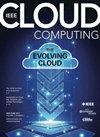Bayesian Uncertainty Modelling for Cloud Workload Prediction
Q1 Computer Science
引用次数: 3
Abstract
Providers of cloud computing systems need to manage resources carefully to meet the desired Quality of Service and reduce waste due to overallocation. An accurate prediction of future demand is crucial to allocate resources to service requests without excessive delays. Current state-of-the-art methods such as Long Short-Term Memory-based models make only point forecasts of demand without considering the uncertainty in their predictions. Forecasting a distribution would provide a more comprehensive picture and inform resource scheduler decisions. We investigate Bayesian Neural Networks and deep learning models to predict workload distribution and evaluate them on the time series forecasting of CPU and memory workload of 8 clusters on the Google Cloud data centre. Experiments show that the proposed models provide accurate demand prediction and better estimations of resource usage bounds, reducing overprediction and total predicted resources, while avoiding underprediction. These approaches have good runtime performance making them applicable for practitioners.云工作负荷预测的贝叶斯不确定性建模
云计算系统的提供商需要谨慎地管理资源,以满足期望的服务质量,并减少由于过度分配而造成的浪费。对未来需求的准确预测对于为服务请求分配资源而避免过度延迟至关重要。目前最先进的方法,如基于长短期记忆的模型,只对需求进行点预测,而不考虑预测中的不确定性。预测分布将提供更全面的情况,并为资源调度器决策提供信息。我们研究了贝叶斯神经网络和深度学习模型来预测工作负载分布,并在Google Cloud数据中心8个集群的CPU和内存工作负载的时间序列预测上进行了评估。实验表明,该模型能够准确地预测需求,更好地估计资源使用边界,减少了过度预测和总预测资源,同时避免了低估。这些方法具有良好的运行时性能,使它们适用于从业者。
本文章由计算机程序翻译,如有差异,请以英文原文为准。
求助全文
约1分钟内获得全文
求助全文
来源期刊

IEEE Cloud Computing
Computer Science-Computer Networks and Communications
CiteScore
11.20
自引率
0.00%
发文量
0
期刊介绍:
Cessation.
IEEE Cloud Computing is committed to the timely publication of peer-reviewed articles that provide innovative research ideas, applications results, and case studies in all areas of cloud computing. Topics relating to novel theory, algorithms, performance analyses and applications of techniques are covered. More specifically: Cloud software, Cloud security, Trade-offs between privacy and utility of cloud, Cloud in the business environment, Cloud economics, Cloud governance, Migrating to the cloud, Cloud standards, Development tools, Backup and recovery, Interoperability, Applications management, Data analytics, Communications protocols, Mobile cloud, Private clouds, Liability issues for data loss on clouds, Data integration, Big data, Cloud education, Cloud skill sets, Cloud energy consumption, The architecture of cloud computing, Applications in commerce, education, and industry, Infrastructure as a Service (IaaS), Platform as a Service (PaaS), Software as a Service (SaaS), Business Process as a Service (BPaaS)
 求助内容:
求助内容: 应助结果提醒方式:
应助结果提醒方式:


